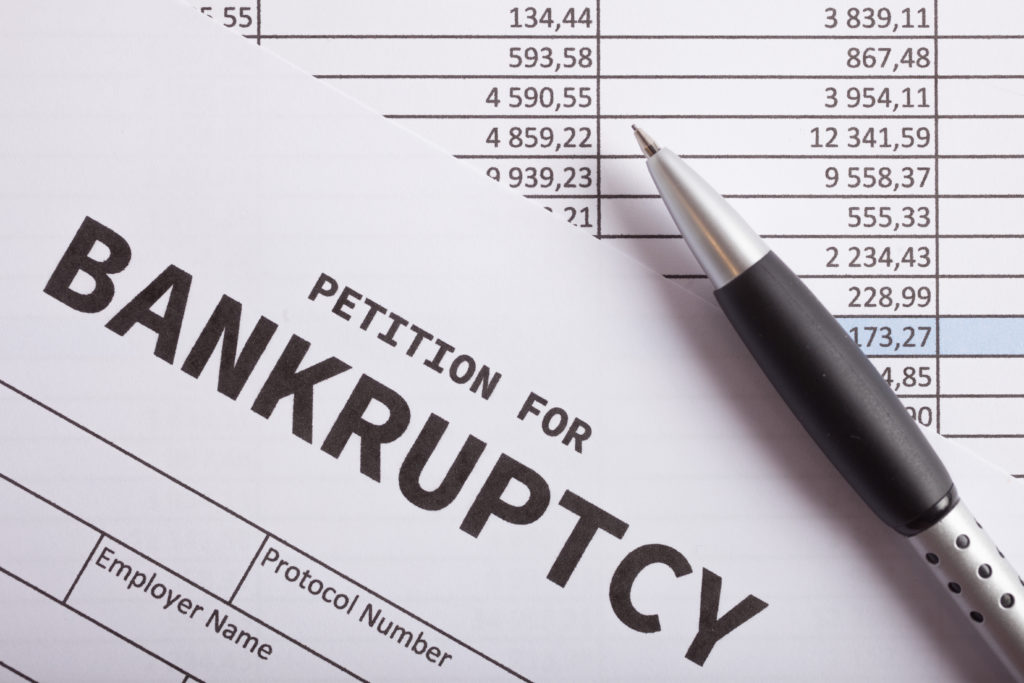If you’re thinking about Chapter 7 bankruptcy, the first step is to schedule a consultation with an experienced Chapter 7 bankruptcy attorney. We offer free consultations, which you can schedule here.
We help individuals file Chapter 7 and Chapter 13 bankruptcy. Individuals can also file Chapter 11, but they rarely do.
Most people will file Chapter 7. The most common reason someone will file Chapter 13 is because the filer’s household income is above the income limits for Chapter 7.
When we meet during your initial consultation, we’ll talk about all sources of income that come into your house, including any that your spouse brings in, even if he or she isn’t filing. The income limit is based on the median income for your household size as set forth by the United States Census Bureau. They typically update median income numbers every May and November.
Assuming your household income is within the median income, and there aren’t any other reasons to warrant filing a Chapter 13 (such as having extremely high equity in your home), we can discuss filing a Chapter 7 bankruptcy for you.
What Is Chapter 7 Bankruptcy?
Chapter 7 bankruptcy is also sometimes referred to as “liquidation” bankruptcy. What that means is that you have turn over (or pay for) any assets that are worth more than what is protected under the Colorado bankruptcy exemptions. Exemptions are the rules that protect certain personal belongings and real estate. Keep in mind that those exemptions are fairly generous and relatively few people who file Chapter 7 bankruptcy in Colorado have to turn over any assets.
In exchange for turning over any unprotected assets, your credit cards, unsecured loans, past apartment leases, medical bills and more will be legally eliminated. Imagine going through your day and sleeping through the night without stressing about debt collectors calling you. Chapter 7 bankruptcy is the one exception to the old saying, “if it sounds too good to be true, it is.”
What Assets Can A Chapter 7 Bankruptcy Attorney In Colorado Protect?
As I mentioned above, Chapter 7 bankruptcy filers have to turn over any non-exempt (unprotected) personal belongings or real estate. The exemptions for personal property in Colorado are set forth in Colorado Revised Statute section 38-54-102.
There are exemptions for a variety of personal belongings, like your vehicle, furniture, electronics, even your home.
Keep in mind, though, that each exemption has a dollar limit for the value of the item that can be protected. For example, the current Colorado vehicle exemption can only protect $15,000.00 in equity. As long as the car is worth less than $15,000 than what you owe, you’re golden. The bankruptcy trustee won’t be interested in the car.
The dollar amounts change from time to time, so you should talk with an experienced bankruptcy attorney to find out what the current exemptions are.
How Long Does The Typical Chapter 7 Bankruptcy Process Take?
Once we have all of your documents and fees, we can get started on your petition (the paperwork that gets filed with the court when someone declares bankruptcy). How long that process takes can depend on how complete your paperwork is, but it averages around two weeks. After we have a draft petition, we’ll schedule time to review it with you. We want to make sure you understand it and that it is complete and accurate. Remember, you have to affirm to the court that everything is correct. Once that’s done, we can file it.
Your meeting with the trustee will be about 30 days after we file. That meeting typically lasts about five minutes. We’ll make sure you’re well prepared for it so there aren’t any surprises.
You’ll get your discharge order from the bankruptcy court about 75 days after your meeting with the trustee. Your discharge order is the pot of gold at the end of the rainbow. It’s what you’ve been looking for to relieve you of all of the stress you’ve been dealing with from your overwhelming debt. It basically tells the world that you are no longer legally liable for your dischargeable debt. Unfortunately, you’ll still be on the hook for your non-dischargeable debts. Those are typically things like child support/spousal maintenance, student loans, taxes, court orders from criminal activity (e.g. restitution or traffic tickets).
The bankruptcy court will typically close your case about a month after you get your discharge order. That can change if you have to turn anything over to the trustee.
What Is The 341 Meeting Of Creditors?
The only appearance that 99.9% of people who file Chapter 7 bankruptcy in Colorado will have to make is at their meeting with the trustee. It’s a very brief meeting, and usually only lasts about five minutes. The trustee’s job is to see if there is anything (like personal belongings) he can have to pay your creditors. The trustee is not a judge. You’ll likely never step foot inside a courtroom or meet a judge during the bankruptcy process.
Although it’s called the 341 meeting of creditors, it is extremely rare for creditors to show up. After appearing at more than 1000 of these meeting, I have only had about five creditors show up, and those involved an ex-spouse.
The trustee meeting will cause you a great deal of stress. I’m sorry. I wish I could relieve you of that stress. No matter how much I prepare you, you’re probably still going to be anxious. After your five-minute meeting with the trustee, you’ll be more relaxed than you have been since our first meeting.
The trustee will put you under oath and ask you a series of questions, most of which only require a yes or no answer. By the time you meet with the trustee, you’ll have heard those questions from my three or four times and will be ready to answer them.
What’s The Best Thing About Filing Chapter 7 Bankruptcy In Colorado?
The best thing about filing Chapter 7 bankruptcy is the immediate relief you’ll feel. The phone calls have to stop. The garnishments have to stop. The lawsuits have to stop. Instead of worrying about whether or not you’ll be able to pay your rent, you can think about putting money into savings to buy a home. You can stop worrying about whether or not your old car will get you to work and start thinking about replacing it with a newer one.
Talk To A Top-Rated Denver, Colorado Chapter 7 Bankruptcy Attorney
We are experienced Denver, Colorado bankruptcy attorneys who have guided hundreds of clients through the Chapter 7 bankruptcy process. We can guide you safely through the Chapter 7 bankruptcy process. We’ll help you eliminate as much debt as possible while keeping most, if not all, of your personal belongings.
If you’re thinking about Chapter 7 bankruptcy in Colorado, we hope you’ll schedule a free consultation. You can do so by clicking here.
Check out our client reviews on Google, Facebook, and Avvo!



